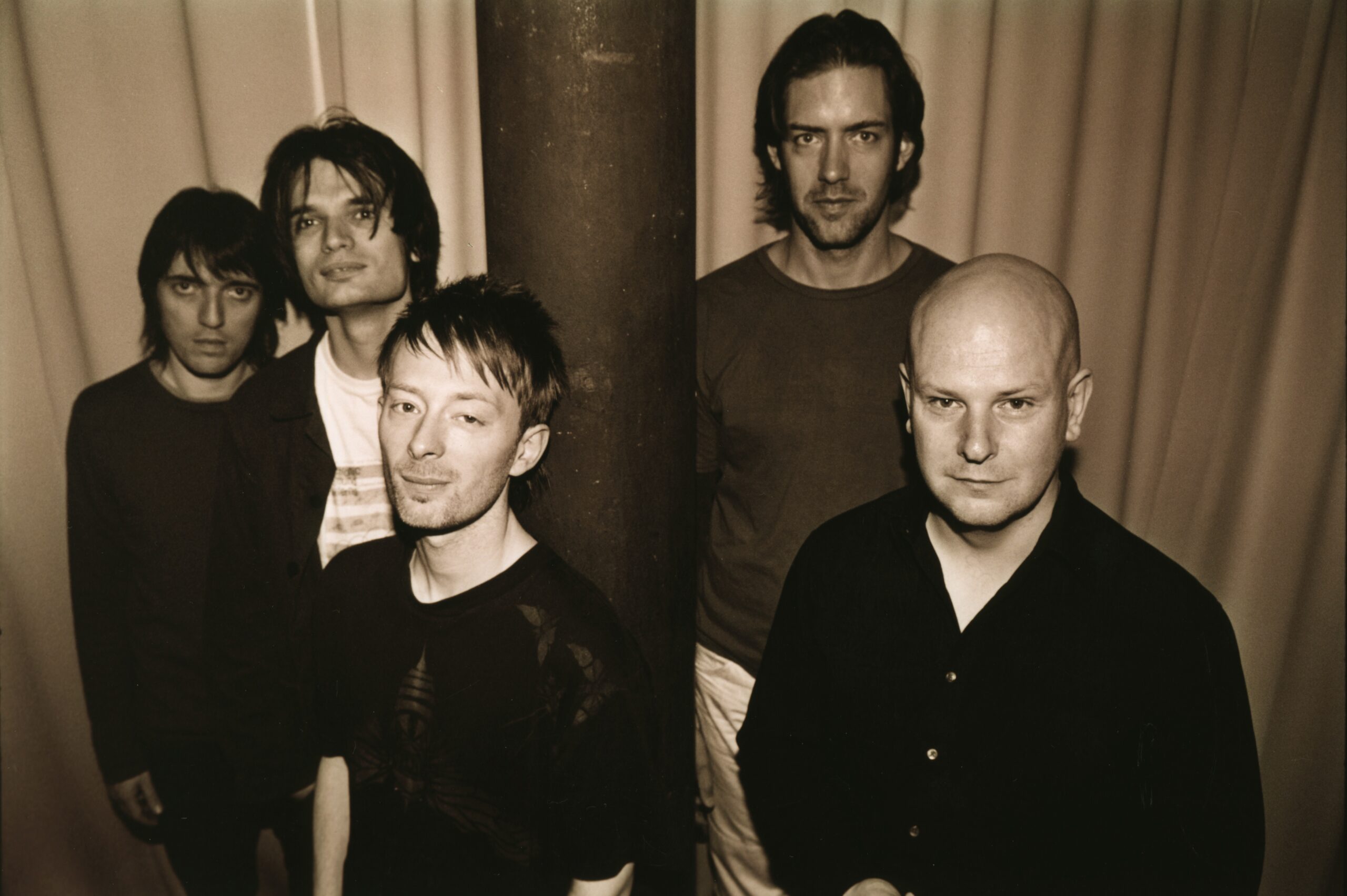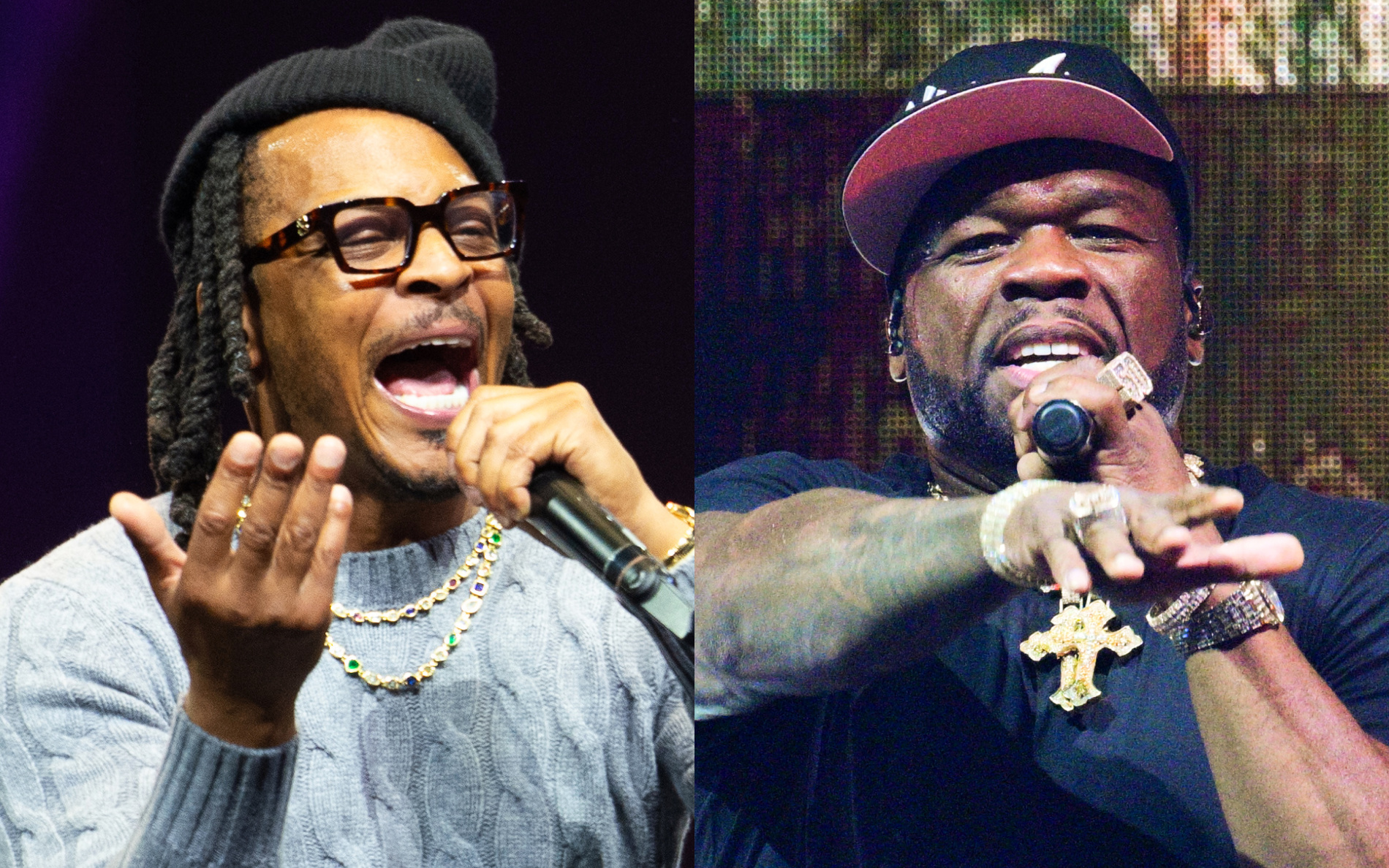SPIDER appears in our Summer 2024 Issue with cover stars Wallows, Drain, Maya Hawke, the Linda Lindas, and Winnetka Bowling League. Head to the AP Shop to grab a copy.
Jennifer Irabor is heavily creeped out by spiders. During the pandemic, burnt out on music and in the midst of a creative lull, she began to spot them everywhere. As she asked her flatmate to carry them outside, she started researching what spiders meant in spirituality and folklore. She learned that, as web weavers, the critters are often a symbol of creativity; she even read that in some legends, they show up to guide the creatively blocked back to their practice. There couldn’t be a clearer sign than that. So, christening herself SPIDER, she returned to work — resulting eventually in her first EP, 2022’s C.O.A, which was followed by HELL OR HIGH WATER in 2023.
Now, the 24-year-old artist, who hails from Dublin and is based in London, put out her third EP, an object of desire. It’s a giddy yet gritty blend of pop punk, riot grrrl, and grunge, on which Irabor’s acrobatic voice is frank and biting, exploring the complex emotions involved in navigating sex and sexuality. “Is a yes still a yes if you’re just eager/To hide in the thrill so you feel less forgotten?” she asks on the title track, while on “straight out the oven !” she confesses, “It’s safer than believing that you’re wanted instead of hurting ’cause your concept of self’s been distorted.”
Read more: 25 best albums of 2024 so far
Growing up in a Catholic household, Irabor wasn’t allowed to go to concerts or to express her alternative fashion sense in the ways that she wanted — but what she did have was online fan spaces like Tumblr and Twitter, where she fell in love with artists like 5 Seconds of Summer, Halsey, and Lorde. To this day, she says, “I’m a fan first before I’m even an artist,” and it shows in the excitable, exploratory way she channels influences ranging from Le Tigre to Taylor Swift. All of this makes her a multifaceted and purposeful up-and-comer, who sat down with AP to discuss her candid point of view and her priorities as an artist.
You’ve talked about how, growing up in a religious environment, you didn’t feel like you could express yourself. How has that impacted you as an adult and an artist?
I felt stifled a lot, and I guess that pushed me to create in a way. In retrospect, you realize how much an environment like that strips from you, and you’re trying to put it back when you’re an adult and you have space to even start thinking about how it’s affected you, and how much of your mannerisms are based in what you learned in a more restrictive environment. I’m extremely expressive now, because I’m like, “No one’s gonna shut me up.” I’ve been there, I’ve done that, I’m not doing that anymore. I try to prioritize being really outspoken and doing what I want and saying what I want and dressing how I want. It’s like being aware of the person that I wish I could have been when I was 15 and just being that now.
On the EP, you write about objectification and sexuality in a really refreshingly complex way. Why was that at the forefront of your mind?
You know, I’m in my 20s, and I was like, “OK, everyone around me is dating and having fun. Everyone’s fucking.” I was aware of the fact that I had this very religious upbringing that [meant] I have a very different view, and I have very different feelings on desire and intimacy and objectification. And a lot of questions about it, because those weren’t welcome topics where I grew up. Even the education system in Ireland when it comes to sex is not great either, so even in a wider sense past my family environment, it’s just not something that’s talked about. I also think in regards to intimacy and sex and desire, our generation does talk about it, but in a very specific way.
Sometimes I just think we’re expected to be super chill about it, like we know what we’re doing. And it’s like, “No one is nervous or asking questions?” I was just feeling a lot of feelings about it. I was having a lot of interactions, a lot of first experiences, where I was like, “OK, this isn’t matching up to what everybody else is saying about this. I wanna be desired, but when I am desired, I feel objectified, so what does that mean?” And when I was objectified, well, I didn’t react in the way that I thought I would. I wasn’t assertive, I wasn’t combative, and why is that? And like, “OK, well, I’ve had sex, and that was weird. Why was it weird?” It was just bouncing around in my head at the time.
I feel like there’s a lot of anger in these songs that shows up in different ways. What does anger mean to you?
I think anger gets a bad rep. I genuinely think anger is quite a spiritual and important emotion. Growing up, anger was my gateway to other emotions. Because sometimes it wasn’t welcomed if I was sad, but I would get a response if I was angry. So I think anger has always been kinda my best friend. It’s never been something that I demonize. Especially as non-men, it’s not always welcomed for us to express anger. We can feel it as long as it’s kept quiet — we don’t express it. But it’s like, “Bruh, fuck that. Why?” Especially when there’s rightfully things to be angry about. We should actually all be a little bit more angry! The state of the world is actually bullshit — we should all be angry. I think if more people were angry, maybe more things would change. It’s not something to shy away from.
I like how even though there is that anger, and the topics in these songs can get heavy, they also feel really peppy and fun. Where does that come from?
I just was like, “I don’t wanna be that serious.” I think when I started making the project, as much as I was trying to come into it with no expectations, I did feel a certain pressure to suddenly write in a super lyrical genius type of way. I felt like I just cared a little bit too much. And so I think it came from me being like, “OK, who gives a fuck about improving? I’m just gonna make things ’cause I wanna make things.” It’s that thing as artists of being like, “Everything you make has to be one step up from the last thing, and you always need to be improving.”
But I didn’t get into music to improve, you know what I mean? I get the sentiment of being an artist and always making sure that you’re the best at your craft. But I didn’t get into it for a report card from other people about how well I’m doing. I got into it to express myself and to make things the way I want to, and so I was just like, “Fuck it.” I feel like a really angry cheerleader right now, so I’m just gonna sing like a really angry cheerleader.
What do you hope for fans or listeners to take away from your music?
Just complete, unashamed abandon of self. Ask the questions you want, say what you want, do what you want, dress how you want. I just really hope that I’m always communicating a message of self-expression and authenticity and not being embarrassed about really anything. I hope that [fans] listen to my music and feel like they can express themselves any way that they want to, and they can do anything they want regardless of where they come from or what they look like, how they identify. If there isn’t space, make the space. If there’s not a seat at the table, fuck the table. Sometimes you’re meant to disrupt some of these places that you wanna fit in so bad. Who needs a fucking table anyway?







